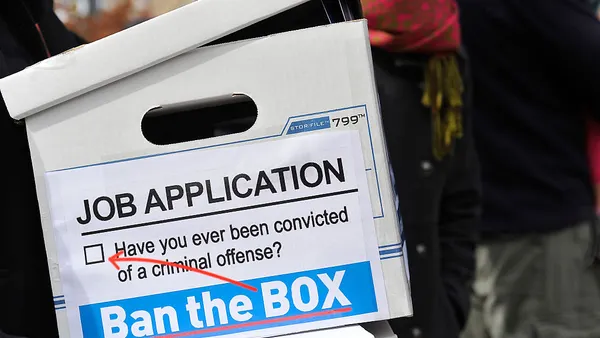Dive Brief:
- A federal appeals court ruled Tuesday that Houston County, Georgia, did not violate Title VII of the Civil Rights Act by denying coverage of gender-affirming care for a transgender Houston County Sheriff’s Office employee (Lange v. Houston County, Georgia).
- “Although the plan does not cover sex change surgeries, it does not treat anyone differently based on a protected characteristic,” the 11th U.S. Circuit Court of Appeals said in its en banc opinion.
- The appeals court said the exclusion is not facially discriminatory under Title VII, reversing a district court’s opinion, vacating a permanent injunction and remanding the case, according to court documents.
Dive Insight:
In ruling in favor of Houston County, Georgia, the split appeals court changed course on a prior opinion.
In May 2024, a divided three-judge panel upheld the U.S. District Court for the Middle District of Georgia’s decision to grant summary judgment in favor of the plaintiff, a transgender woman who was diagnosed with gender dysphoria, and permanently enjoined the county from further enforcement of the care exclusion.
The appeals court agreed in August 2024 to rehear the case en banc “to answer whether the insurance policy facially violates Title VII.”
In its new opinion, the appeals court said the county’s policy is not facially discriminatory based on transgender status but instead a “classification based on medical use.” The court cited U.S. v. Skrmetti, a Supreme Court case in which the high court ruled that a Tennessee law that “prohibited healthcare providers from administering puberty blockers or hormones to treat gender dysphoria, although it allowed them to be prescribed for other conditions” was not discriminatory.
Because the medical treatment would be denied based on certain diagnoses, not based on sex, the Supreme Court’s landmark Bostock v. Clayton County, Ga., decision, which held that Title VII prohibits employment discrimination on the basis of sexual orientation or gender identity, does not apply, the court ruled in Skrmetti.
Similarly, in Lange v. Houston County, Georgia, “the County’s plan would cover the procedures that make up a sex change for other purposes, such as treatment for cancer or reconstructive surgery following a car accident, whether or not the employee who needed those procedures was transgender,” the appeals court said.
“The Supreme Court’s reasoning in Skrmetti applies equally here,” the appeals court said. “The County’s policy does not pay for a sex change operation for anyone regardless of their biological sex.”














